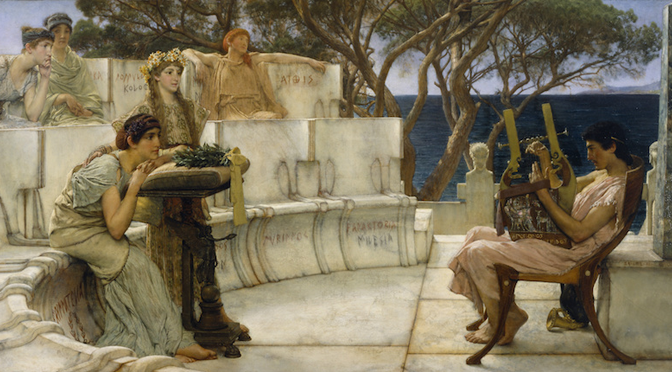The Greatest Poet You’re Not Reading
If you’re a writer, chances are you’ve heard of Homer, Virgil, and Ovid. But have you heard of Sappho? She’s one of the most influential poets in history, and yet her work isn’t as widely known as it should be. Sappho is a poet that every writer, especially female writers, should know about. In this article, we’ll explore who she was, what she did, and why she’s still relevant today.
Sappho was a Greek poet who lived on the island of Lesbos around 600 BCE. She was well-respected in her time and is known for her lyric poetry, which explored emotions and relationships. However, most of Sappho’s work has been lost over time. Only a few fragments of her poetry have survived, and they’ve mostly been found on scraps of papyrus.
Sappho’s poetry was primarily written for the women of her community, and her work was influential in developing a female-centered culture on Lesbos. But Sappho’s poetry wasn’t just for women – her work has inspired poets of all genders for centuries. She’s been praised by writers such as Virginia Woolf, T.S. Eliot, and Emily Dickinson.
- The ancient Roman poet Catullus wrote several poems that quoted Sappho or referred to her work.
- English poet Elizabeth Barrett Browning wrote a famous poem titled “To Sappho” in which she praised the Greek poet as a role model.
- French writer André Gide wrote a biography of Sappho entitled “Sappho.”
- U.S. writer Gertrude Stein wrote a drama titled “Ladies’ Voices,” which was about Sappho and her relationship with one of her students.
- Canadian writer Anne Carson wrote a book called “Eros, the Bittersweet,” which deals with the love poetry of Sappho and other ancient poets.
Sappho’s influence on literature can also be seen in the work of contemporary female writers such as Adrienne Rich and Anne Michaels. These writers have used Sappho’s work as a source of inspiration, exploring themes such as love, sexuality, and desire. Sappho’s poetry was groundbreaking for its time, and it’s still relevant today.
But Sappho’s legacy isn’t just limited to her poetry. She was also a teacher, and she founded a school for young women on Lesbos. Her school focused on music, dance, and poetry, and it was one of the few places where women could receive an education. Sappho was an advocate for women’s rights and was vocal about her belief that women should have equal access to education and the arts.
Sappho’s work may have been lost over time, but her influence on literature and culture is still felt today. She was a feminist icon who used her poetry and her teaching to empower women and inspire writers of all genders. If you haven’t read Sappho’s work, I highly recommend that you do. Her poetry is beautiful, moving, and still as relevant today as it was 2,600 years ago.

